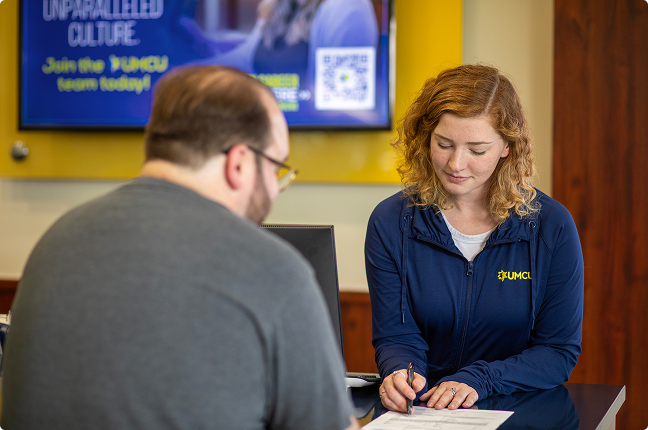Protect Yourself From Fraud: Your Money, Your Security
Fraud can happen to anyone, but with the right knowledge, you can significantly reduce your risk.
Scammers impersonate financial institutions such as UMCU to trick people into sharing personal or account information. They may sound convincing by claiming to be from an official department, using urgent language, or referencing recent transactions.
At UMCU, we want you to be attentive and confident in recognizing red flags. Below are examples of things scammers might say — and how you can tell it's not really us:
- "We've detected suspicious activity on your account. Please verify your username and password so we can take action."
- We will never ask for your login credentials. We have access to systems to investigate fraud without needing your password.
- "We sent you a verification code. Can you read it back to us so we can secure your account?"
- We will never ask for your two-factor authentication code. That code is meant to protect you — only you should enter it.
- "We need remote access to your computer to stop the fraud before it spreads."
- We will never ask to access your device. Fraudsters use this tactic to steal information.
- "Your account has been compromised. We need you to move your money to a 'safe' account immediately."
- We will never ask you to transfer funds to protect them. That's a common scam tactic designed to get your money into the scammer's hands.
Whenever someone contacts you for money or information, it's okay to pause. Hang up and call us directly using a number you know and trust, like (800) 968-8628.
Identity Theft
Identity theft occurs when someone uses your personal information to make purchases, access financial accounts, apply for loans, open new credit cards, receive medical care, and more. Identity thieves often start by gaining access to your Social Security number, account credentials, credit card information, etc.
Common Fraud Scams
Stay informed about the latest scams to protect yourself. Here are some common ones to watch out for:
- Phishing: Be wary of suspicious emails, texts, or calls asking for personal information.
- Smishing: Similar to phishing, but through text messages.
- Vishing: Fraudulent phone calls claiming to be from a legitimate source.
- Skimming: Protect your card information by shielding your PIN when entering it and checking for card skimmers at ATMs.
How to Protect Yourself
Take these proactive steps to safeguard your finances:
- Personal Information: Know who you are communicating with if someone asks for personal information
- Strong Passwords: Create complex passwords for all your online accounts and change them regularly.
- Monitor Accounts: Regularly review your account statements for any unauthorized transactions.
- Credit Report: Access your personal credit report using www.annualcreditreport.com to review your report and ensure that there is no fraudulent loan activity.
- Beware of Public Wi-Fi: Avoid accessing sensitive information on public Wi-Fi networks.
- Keep Software Updated: Ensure your devices have the latest security patches.
- Shred Sensitive Documents: Properly dispose of documents containing personal information.


